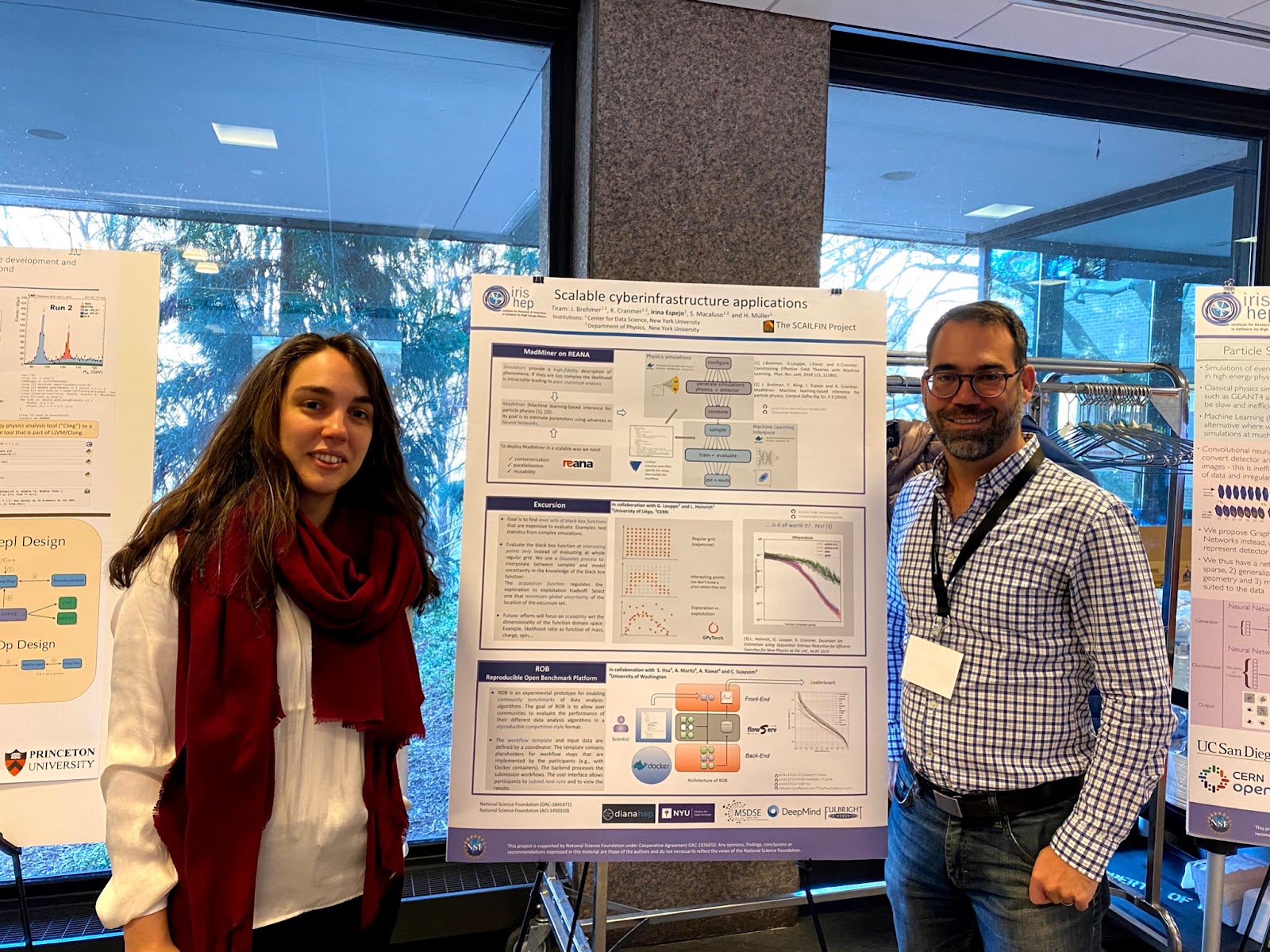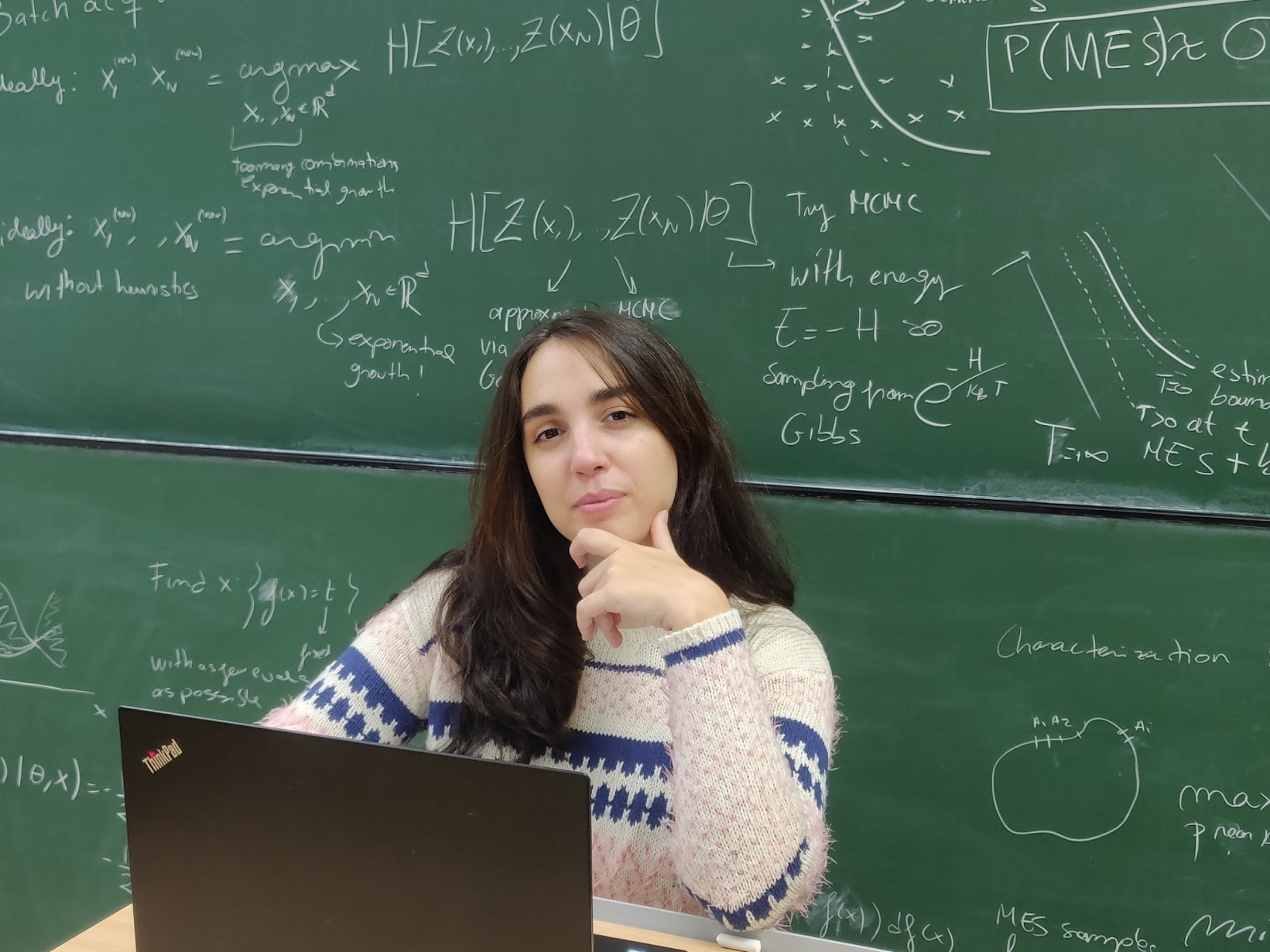Irina Espejo says that if she weren’t trying to understand the building blocks of matter, she’d be studying the brain.
“It’s a really big mystery,” she says. “I wonder why all these years of evolution would make something that thinks and is aware of the world.”
On the surface, particle physics and neuroscience couldn’t be more different. But to Espejo, a doctoral student in data science at New York University, both disciplines aim to answer age-old questions about the cosmos and humanity’s place in it.
“I like to go to what I think is the question of the field,” Espejo says. Then, to answer that question, she asks, “What are the experiments we need to perform to get the maximum knowledge out of them?”
For high-energy physics, Espejo says that the question is “Are we going to find new physics in the LHC?” The answer, she says, will come down to statistics.
A member of the Institute for Research and Innovation in Software for High Energy Physics (IRIS-HEP), Espejo specializes in automated decision-making. Working with her adviser, NYU physics professor Kyle Cranmer, Espejo contributed to the NSF-funded Scalable CyberInfrastructure for Artificial Intelligence and Likelihood Free Inference (SCAILFIN) project, whose aim is to develop simulation-based inference techniques that can be deployed to existing analyses systems. SCAILFIN’s main job is to develop tools to analyze LHC data, but its underlying technology can be applied to a variety of science domains.
“Machine Learning and AI have opened the minds and expanded the ambitions of the particle physics community,” Cranmer says. “Irina is developing techniques that allow us to tackle problems that were previously out of our grasp.”

Espejo and NYU physics professor Kyle Cranmer present a poster describing the SCAILFIN Project at an IRIS-HEP poster session at Princeton University in February 2020.
“A question of statistics”
A native of Spain’s Catalonia region, Espejo has been drawn to science from an early age. One of her early memories is watching a popular astronomy documentary series called “nostra nau” (“Our Spaceship”).
She says that the images of stars and other celestial bodies offered her a glimpse of a world that is at once transcendent and timeless. “I saw something that is there no matter what happens during your everyday life, that’s going to be there for millions or more years,” she says. “That’s what’s meaningful to me.”
As an undergrad at the Universitat Autònoma de Barcelona, Espejo majored in physics and math. During her final year, she accepted a month-long internship at CERN, where she became fascinated not just with the fundamental questions about the nature and structure of matter, but also the epistemic problems that cling to these questions.
“I realized that the question, ‘Is there new physics to be found at the LHC?’ is a question of statistics,” she says. “Do the predictions match the observed data or is it a deviation? That is a very statistical question.”
Upon completing her Master’s degree in theoretical physics at Oxford in 2018, Espejo opted to pursue a more interdisciplinary track. She found what she was looking for at NYU, which one year earlier had launched one of the first PhD programs in data science.
“I discovered that the types of algorithms I work on can be applied in chemistry and psychophysics,” she says.
No matter the discipline, she begins with the same question: “What are the experiments we need to perform to get the maximum knowledge out of them?”
But Espejo also understands that experiments alone don’t maximize knowledge. “Good science needs good software engineering by its side,” she says.
“Making something that lasts”
A member of IRIS-HEP, Espejo appreciates having the opportunity to work on long-term cyberinfrastructure projects. “It’s about making something that lasts. It’s not just trying to hit the next conference with some project you just thought about….I think I’m incredibly lucky to have found this place.”
“As a PhD candidate in Data Science, Irina brings a perspective that not only impacts particle physics, but also ensures that the techniques we develop are broadly applicable,” Cranmer says.
She especially appreciates IRIS-HEP’s emphasis on collaboration. “Hard questions require a lot of work and people working on different pieces and putting it together,” she says.
Throughout her academic career, she never let go of the feeling she experienced as a child that science can connect our transient, everyday lives to a world that endures for much longer.
“Science is collaborative in space and in time,” she says. “I am part of a very long timeline, building on the work of others. Without them I would not be able to do what I do.”
